adrienne maree brown
“We are in a time of new suns”
“What a time to be alive,” adrienne maree brown has written. “Right now we are in a fast river together — every day there are changes that seemed unimaginable until they occurred.” adrienne maree brown and others use many words and phrases to describe what she does, and who she is: A student of complexity. A student of change and of how groups change together. A “scholar of belonging.” A “scholar of magic.” She grew up loving science fiction, and thought we’d be driving flying cars by now; and yet, has found in speculative fiction the transformative force of vision and imagination that might in fact save us. Our younger listeners have asked to hear adrienne maree brown’s voice on On Being, and here she is, as we enter our own time of evolution. This conversation shines a light on an emerging ecosystem in our world over and against the drumbeat of what is fractured and breaking: working with the complex fullness of reality, and cultivating old and new ways of seeing, to move towards a transformative wholeness of living.
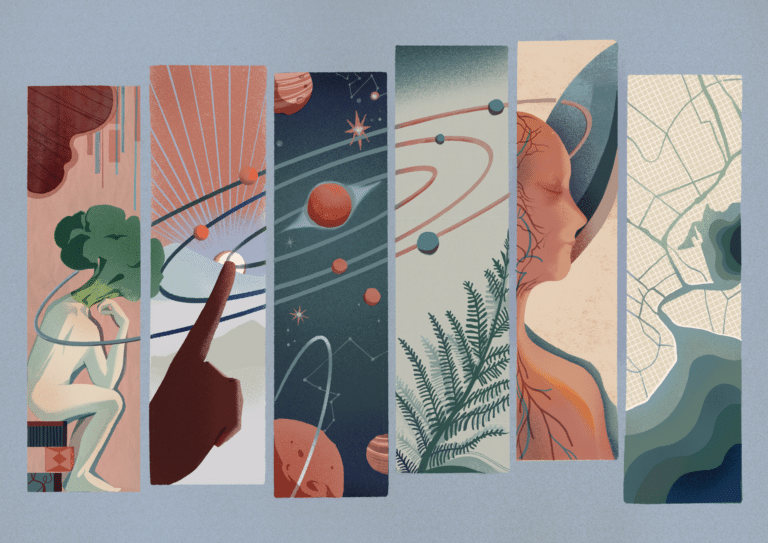
Image by Cyan Lin, © All Rights Reserved.
Guest

adrienne maree brown is the author of wildly influential books including Emergent Strategy, We Will Not Cancel Us and Pleasure Activism, as well as a workbook for facilitation and mediation, Holding Change. She is the co-editor of Octavia’s Brood and co-hosts several podcasts, including Octavia’s Parables and How to Survive the End of the World. She is the writer-in-residence at the Emergent Strategy Ideation Institute, which she founded. Image by Anjali Pinto.
Transcript
Transcription by Heather Wang
Krista Tippett, host: “What a time to be alive,” adrienne maree brown has written. “Right now we are in a fast river together — every day there are changes that seemed unimaginable until they occurred.” adrienne maree brown and others use many words and phrases to describe what she does, who she is: a student of complexity, a student of change and of how groups change together, a “scholar of belonging,” a “scholar of magic.” She grew up loving science fiction and thought we’d be driving flying cars by now, and yet has found in speculative fiction the transformative force of vision and imagination that might in fact save us.
Our younger listeners have asked to hear adrienne maree brown’s voice on On Being, and here she is, as On Being enters its own time of evolution. This conversation shines a light on an emerging ecosystem in our world, over against the drumbeat of what is fractured and breaking, working with the complex fullness of reality and cultivating old and new ways of seeing, to move towards a transformative wholeness of living.
[music: “Seven League Boots” by Zoë Keating]
I’m Krista Tippett, and this is On Being.
adrienne maree brown is the author of several books which are shaping new generations, among them Emergent Strategy, Pleasure Activism, Octavia’s Brood, and We Will Not Cancel Us. She is the writer-in-residence at the Emergent Strategy Ideation Institute. She lived for many years in Detroit and now lives in Durham, North Carolina, where she was as we spoke.
Hi there.
adrienne maree brown: Hi. How are you?
Tippett: I’m good. It’s Krista. I’m so happy to meet you. So honored to have you here.
brown: It’s so good to meet you, Krista. Your voice has been in my ear.
Tippett: Oh, that means a lot. I would love to ask you this question that I’ve asked so many people: how you would start to speak about what the spiritual background of your childhood was, however you would describe that, looking back now.
brown: Yes. I love my spiritual childhood, actually. [laughs] So I think the big-picture way to think about it maybe is, I was born into a household that was at the transition point, like on the horizon between an evangelical Christianity that was very obligatory and very shame-and-judgment, God-is-going-to-punish-you, and that kind of religiosity of spiritual practice. But we were at the horizon to a more direct and action-based, practice-based spirituality. And my parents were an interracial marriage in the ’70s, mid-’70s, so they kind of —
Tippett: Your mother was white and your father was Black, and they met in South Carolina.
brown: Yes, mother white, father Black, and met in South Carolina, fell in love at Clemson University. But they were making a whole world unto themselves, and so we went to church. My dad was in the military, and we were often in nondenominational churches on the base. But we were always really encouraged to think and to ask questions. We were taken out into nature — my parents loved to take us to parks and take us to the mountains and show us, like, Look at the world.
If I was going to say what are the most persistent spiritual practices, it was probably gratitude and compassion. We were always like, wow! We get to be here. Wow. Just be amazed by this world, and travel and be curious and see it all. And then when people would mistreat us, or when we would encounter intense racism and other things, there was so much — there was a compassion, of just like, Oh, that’s on them. [laughs] You know? That’s — they’re struggling. They’re struggling, but we’re safe. We love each other. We’re good.
Tippett: And Octavia Butler, the science fiction writer, is such an influence on you. Some people will have read her, some won’t. But so just knowing that, talk a little bit about what she worked in you.
brown: So she was a science fiction writer, and at the time that she was writing, she would always be like, “I’m kind of the only one” — the first of what she was, a Black woman writing science fiction. And when I read her work I think what opened up in me was all this possibility.
So until reading that, I had been reading Philip K. Dick and all these other sci-fi — I loved it. I love Star Trek. I love Star Wars. But then Octavia, I open up her books and the protagonist is a Black girl. And both the Blackness and the youth matter here. She was writing people who were 15 years old and who already had a sense of destiny and a sense of, The world needs to change, and I’m going to shape that. I’m going to be a part of that.
And she was very solution-oriented in her writing. She was very practical in her writing. She wrote so many stories where the main message was like, Change is coming. You can be prepared for it, and you don’t have to be a victim of it. You can actually shape it. So she opened all of that up for me, and I kept returning to the work, over and over again.
She also really opened up that you can look to nature as a teacher; that the natural world is up to a lot of things, and we are natural. And so anything that’s happening out there can happen in us. [laughs] And we can coexist, and we can be symbiotic, and we can collaborate.
And her disappointment in humanity also was really comforting to me. [laughs] She was just like, wow, we have this amazing, awesome Earth, and we are just fumbling the bag, because we’re so obsessed with using our intelligence to enact hierarchies over each other. And I was like, she gets me. [laughs] She sees what I see. [laughs]
Tippett: There’s this passage from The Parable of the Sower, “The Book of the Living, verse 19.” I’ve seen you work with the words, with the language and the ideas that are at the core of your work, also kind of emergent from this passage. And so “[a]ll successful life is —” and I just love that framing, right?
brown: All successful life.
Tippett: It’s what could we be moving towards, right? What — how does successful life function: “is Adaptable, / Opportunistic, / Tenacious, / Interconnected, … / Fecund. / Understand this. / Use it. / Shape God.” It feels to me like — and you sometimes speak about — what is it you say? — that visionary fiction is a core principle in your work. And it seems to me that what you’re getting at there is a core value of imagination, and understanding the power of imagination in making the world and remaking the world.
brown: Well, you know, I want to shout-out my friend Walidah Imarisha, who named visionary fiction. And I was obsessing over Octavia, and she was, also. [laughs] And we found each other. And we wrote, pulled together this anthology called Octavia’s Brood. And in that process, I started the work of emergent strategy, started to listen to what is up with the natural world — what can it teach us about how to be humans and how to be humans in a better relationship with each other?
And what I realized is it is the work of radical imagination to do so, but also that we’re living inside of imaginations that other people told us were true and told us were like, this is how the world is. And I always uplift my friend Terry Marshall. He was the first person to say this to me, that we’re in an imagination battle, which just blew my mind. And I think about it often — that we live in this abundant world, and we’ve been told it’s scarce. And then we’re given all these stories of scarcity.
So, so much of the work, for me, of radical imagination is like, what does it look like to imagine beyond the constructs? What does it look like to imagine a future where we all get to be there, not causing harm to each other, and experiencing abundance?
Tippett: You’ve even spoken about that organizing can be treated like time travel.
brown: Yes, it is.
Tippett: Say some more about that. What does that mean?
brown: It’s like, we are reaching into the future, we are trying to project what we can imagine into the future, and organizing is a way of saying, We are going to put our hands directly on the future.
But it’s also time-traveling backwards. So much of organizing is looking back at, what did our ancestors try? What did they learn? What were they up to? What was Harriet Tubman doing? [laughs] I’m obsessed with Harriet Tubman. I’m obsessed with, what was it like to walk in her shoes and to face her fears? So I always want to reach back and be like, OK, well, now what is the Harriet Tubman activity to do, in this time? And what is Harriet Tubman up to in 2063? — because there’s always someplace that needs justice and liberation.
Tippett: A minute ago you were talking to me about your childhood, and you said your parents having an interracial marriage in the ’70s, they were making a world that didn’t exist. And that’s what visionary fiction does, that’s what fiction does, and I hear you saying that’s what organizing does.
brown: And there’s a way — just like I think my parents ran into, it’s like, you have to bring that imagination into relationship with reality — and that can be devastating — being with what is and then figuring out how do we make more possible.
Tippett: I feel like your work and your writing, your activism, and really the conversation, the wider ecosystem of conversation and action and change and imagination that you’re part of, is — there’s a vocabulary. There’s really a lexicon that’s being unfolded. And it’s words and ideas and practices and — so I think one of the things I want to do in this short time we have is to kind of just lay some of that out. So obviously, emergent strategy is at the core of it. Talk about what it means to put those words together, “emergence” and “strategy.”
brown: I love talking about this. [laughs] Maybe I’ll never tire of it. But I’ll also try to be brief. So the word “emergence,” the definition I work with comes from Nick Obolensky. And emergence is the way complex systems and patterns arise out of relatively simple interactions. So birds flapping their wings, birds in a flock together, is a relatively simple interaction; but birds all doing that together and avoiding predation can become the most complex, gorgeous patterns of murmurations, migration, survival. So we’re all emergent beings — humans are an emergent species amongst emergent species.
And the strategy part comes in — I think what we mean by strategic is: able to adapt to changing conditions, while still moving towards our vision of freedom and the future and being in that practice. So that’s what emergent strategy is. It’s like, how do we get in a right relationship with change that allows us to harness and shape things, towards community, towards liberation, towards justice?
Tippett: I was looking on the website of the Emergent Strategy Ideation Institute, and that notion of acknowledging the real power of change and embracing — finding practices and responses, visions and plans, that embrace complexity, interdependence, and transformation, and also noting that “this strategy has been observed from the natural world and is both ancient and constant.” So even in this short conversation you and I have had, you’re always locating yourself within, right, within an ecosystem of teachers and role models and language. So your teachers, also, are in the natural world. They are mushrooms and dandelions.
brown: Absolutely.
Tippett: [laughs] Well, so talk to me about the strategic intelligence of mushrooms.
brown: So mushrooms, I feel like they’re our great detoxer. They’re the ones who understand that nothing needs to be wasted, that everything can be used in some way, we just have to understand what it is. And I often think about this when it comes to our abolition conversations and our justice conversations — that mushrooms are like, This is food, if we can find a way to use it. This could be nourishment. And when something breaks down in our communities, it’s actually a moment, usually, when something needs nourishing or when something is dead, when something is done, it’s complete, and it needs to be processed back into the whole.
Tippett: Can you think of just an example, just a situation?
brown: Oh yeah. So in movement spaces — I worked as a facilitator for 25 years. So one of the things I saw all the time is an organization would have served its purpose, or served the initial purpose it came into existence for, and what would’ve been great and possible was to just sunset the organization, just be like, Great. We did a good job. Let’s call it. Let’s learn what we need to learn, and move on. And instead of doing that, the organization was like, No, we need to persist. So let’s change our mission, we’ll update our mission, and here’s what the philanthropy is willing to fund. And they get contorted.
But we often forget that it’s like, oh, now it’s time to compost this and process it and see where else the resources need to flow.
Tippett: And I think what you’re describing is true of all kinds of organizations, right? It’s a cultural — it’s a cultural kind of bias and sensibility that we have, that if something dies or ends …
brown: That that’s bad.
Tippett: … that it’s failure.
brown: Exactly. Exactly.
Tippett: This is coming to me as — [laughs] this is feeling very close to me right now, because I don’t know if you’ve heard that we’re kind of winding down the weekly radio show, which is how On Being started — two decades.
brown: Wow. That’s huge.
Tippett: It is huge, and I think without having all the vocabulary and all the words and the philosophy that you’ve just laid out, I know it’s just time, right? And it’s an ending and it’s a beginning — it’s vitality.
brown: It’s vitality …
Tippett: Vitality has endings in it.
brown: … and what you’re speaking to is the life force, right? Everything dies, but that’s kind of good. [laughs] It makes for a very rich world. All the richness, all that fecundity, all that beautiful miracle of life, it happens because we live in cycles, not perpetuity.
Tippett: And as you say, composts something else, right — other seeds. Other seeds then have their moment, have their time.
brown: Exactly. Exactly. And it’s trying to hold onto stuff and not let it die that actually puts us in precarious positions, even for our species. This is actually one of our biggest issues right now is we’re so scared of death. And so we think about how do we make people live forever, and how do we look young forever, and do all this stuff instead of being like, Oh, no. How do I get good at dying? How do I get to where I’ll be at peace when my time comes, because there’s other generations that need to survive off of the resources of this place? [laughs] It’s in the design.
[music: “a2” by Ólafur Arnalds & Nils Frahm]
Tippett: I’m Krista Tippett, and this is On Being, today with emergent strategist adrienne maree brown.
[music: “a2” by Ólafur Arnalds & Nils Frahm]
Just drawing on what you were just saying, I mean, emergence is change, right? Someplace you’ve said, “Emergence is our inheritance as a part of the universe; it is how we change.” And emergence doesn’t wait for us to be ready for change, and we’re really in an accelerated moment of that right now.
But as you know, change is really hard for human beings. It’s hard for us at a creaturely level, and also, we all individually handle it in different ways at different times. And so I wanted to talk about — I feel like this wisdom is so powerfully embedded in the way you think and the way you’re working. And one of those for me is the way you use the word “fractal.” [laughs] You said that you first thought about fractals when you were — so just to bring home, again, that this is all about what happens on the ground. You were doing electoral organizing in 2004, is that right?
brown: So I was doing electoral organizing in 2004 — 2003, 2004 — we’re gearing up. It’s post-9/11. It’s like, we’re going to war with Iraq and Afghanistan. And we’re like, we’ve got to get Bush out of office. So we’re doing all this organizing, and it clicked for me, in a way that I couldn’t — it’s one of those things. You see it, and you can’t un-see it. And I was like, oh, we are trying to just change the top layer of this very layered cake, this very layered process, this system of governance. We think that if we just win the presidency, that then we’ll be able to change the world.
And it clicked for me that it’s like, actually, it’s a fractal system. And it’s layer on top of layer on top of layer. And if none of us are practicing democracy anywhere, it’s not going to just suddenly work at the top layer. [laughs] And I got it.
And then I realized — so something about smallness, I was able to gain respect for, because I was like, every single large system or structure or network or political protocol, all of it is made up of small things: of humans either having or not having necessary conversations, and humans being willing to stand up for what is right and stand up against what is wrong. It’s all these small activities that we need to get great at if we want to actually have anything that would be a real democracy.
Tippett: This language of fractal comes from mathematics, right, originally.
brown: Yeah, and the first thing that I was exposed to was actually fractals — the Fibonacci — this sequence is basically how something repeats at scale, no matter how small it gets and no matter how large it is. And it’s these particular patterns in the universe.
And I felt so naughty when I started using fractal, as someone who’s like, I barely understand math. [laughs] But so far my friends who are in the math and science world have not completely doused me in shame, so I feel like I’m OK.
But sometimes I’ll use the language of fractals. Sometimes I’ll just point to actual examples. So I’ll be like, look at a head of broccoli. Look at a fern. Look at the delta around New Orleans, and then look at how these veins and artery systems move through your system and your heart and your lungs. Look at the spiral shapes on your fingertips, and then look at the shape of galaxies.
And in that way, we can begin to see there are no isolated patterns. The universe has some favorites, and they repeat and they repeat, at every scale. And then people are like, Ohh. [laughs] I’m like, yes, your body is a whole water system. There’s all these different formations that are all how to move water. And we’re one of them. And I find it very comforting to find myself in one of those patterns.
Tippett: And that imagery is so stunning, and it provides exactly the contrast to this worldview that you and I were raised in, that came into the 21st century — that you could elect one person at the top, [laughs] and that would change everything.
brown: And that would change everything.
Tippett: That would change everything. It was never true, but perhaps it felt a little more true in a more homogeneous society.
brown: And I also think it’s like, again, in the imagination, if you are someone who would benefit from that power system, then it really behooves you to imagine the world is that way. [laughs]
Tippett: That works.
brown: But I, from a very young age, was like, But I’m just as smart as these white men in my classes, and yet the same opportunities are not available to me. Can someone help me understand that? I need a logic, [laughs] because it’s not adding up.
Tippett: And there is no logic.
brown: And there’s no logic to it. And often, when there’s no logic, then that’s when you know you’re in someone’s dream.
Tippett: And this whole way of seeing, this whole way of imagining, is emergent in our world right now. And there’s struggle around it, there are different ways of seeing, but I think, perhaps more definingly, the conditions aren’t all there, right? So one of the things that you also talk about is how — like, there is going to be important conflict and contradiction. That is part of the process of ending cycles of harm. And so one of the things we also have to be working on — and this gets back to our human condition — and here’s some ways you’ve talked about it. How do we fight fair? How do we struggle in principled ways? How do we practice accountability beyond punishment with each other? — because there are all kinds of friction points, but that’s one of them.
brown: That’s right. Well, and one of my teachers around this is a writer and a thinker named Mariame Kaba, and she’s an exquisite human being, exquisite thinker. And one of the things that she often reminds me of — because I think what would be so comforting to us is if we could be like, We’re going to end the prison system and automatically move to a very well-organized, centralized system where instead of everyone going to prison, you just go straight to a mediator and it’s all handled. And she’s like, It won’t be a huge, overarching, centralized system. Transformative justice will be a lot of us learning the skills to hold conflict within our communities, within our families, within our schools and institutions. We’re learning, ourselves, to hold it in different ways.
But also, I always like to point out that this is some of the most ancient technology, also. If we listen to Indigenous communities around ways that they have resolved conflict over thousands and thousands and thousands of years, a lot of it is these same practices, and they’re still practicing them. So it’s being in a circle. It’s listening. It’s being able to let one person speak at a time. It’s identifying what are the consequences — not the punishments, but what are the reasonable consequences, the boundaries? How do we make this right? What does that actually look like? — and relinquishing the idea that we’ll all end up as best friends at the end or whatever; that kind of fairytale, Disney version of conflict mediation — instead being with what is: the human condition.
It says, it might be hard. You might never get back to that. But you can get to a just place. You can get to a just place. You can get to place where you’re not walking around carrying the anger, that that’s not the primary experience you’re having. It’s like, I was hurt, and now I’ve been able to move forward, and here’s what moving forward looks like, and I was able to define some of that for myself.
[music: “Doria” by Ólafur Arnalds]
Tippett: After a short break, more with adrienne maree brown.
[music: “Doria” by Ólafur Arnalds]
I’m Krista Tippett, and this is On Being. Today I’m with adrienne maree brown, a philosopher, organizer, and social creative, whose work and words are driving emergent vision and strategies in our world of change. In 2020, she published a small tract that unleashed a large conversation beneath our surface of polarized fracture. It’s called We Will Not Cancel Us.
I just want to read a beautiful — some beautiful sentences you wrote, so powerful, and I think this is in We Will Not Cancel Us. [Editor’s note: This passage is from Emergent Strategy] “We are brilliant at survival, but brutal at it. We tend to slip out of togetherness the way we slip out of the womb, bloody and messy and surprised to be alone. And clever — able to learn with our whole bodies the way of this world.”
And the context of that was talking about how your default position is wonder, and you have to carry around a lot of disappointment and frustration [laughs] and critique with humanity, and that you also — that that is especially true when you look at social justice movements, where you expect so much and desire so much. And you’re being honest, and you’re actually saying that from a place of love and of high, brilliant expectations, and so countercultural in this context in which to call for accountability, to express honest critique, even to acknowledge imperfection, is leapt on as failure. So you really walked into a brave and hazardous space. [laughs]
brown: That’s right, Krista. [laughs] I always think about how — I had been away on sabbatical, and the pandemic was unfolding, and I returned from sabbatical and there was like — everyone was canceling each other, is what it felt like. I had been away from social media for not even that long, and so I know this was happening before I stepped away, but I was normalized to it because I was in it every day.
And then when I stepped away and came back, I was like, oh my goodness. This is all we’re doing on the internet now? It just felt like — it just felt so intense. And it didn’t feel — it didn’t feel like what we’re supposed to be up to. I felt like, can we do it a different way? Could we do it with love? And can we be honest — at least honest that there’s not love in the way we’re doing it now? Because I think that was also what was hurting my heart, was people being like, Yeah, we just have to love each other — [laughs] and then we’re doing the most awful, awful dismissals and disposals of each other.
And because of my facilitation background, I was also catching some of those disposals. People would show up and just be like, Hey, you probably saw this, but I just got canceled. And almost always, I was like, I didn’t even see it. I can’t even keep up with all of it.
Tippett: [laughs] Right — you missed it.
brown: So I was like, I had no idea. But this person was devastated, and sometimes suicidal — it was having an impact. And I want us to at least not pretend like it’s not having an impact — at least that. Let’s take responsibility.
And then the other pattern I noticed was, often it was people who were fairly young in movement themselves, or fairly young inside of whatever their political analysis was. I’m like, I can kind of remember before you thought that. I can remember when you might’ve made the same mistake. And my heart just was like, do y’all remember that everyone was transphobic last week? All of y’all were saying this horrific stuff, and we need to unlearn this. Together, we need to unlearn it.
And I think it felt like people were starting to skip the step of actually decolonizing and unlearning these oppressive systems and just being like, I’ll just punish anyone who missteps, and that’ll be how I do my action. And it’s almost like that’s people’s activism now.
And we’re depressed. We’re losing leaders left and right, because people are making mistakes and now there’s no room for making mistakes. So it just felt like a total crisis, to me, that needed a different kind of attention. And because I’d been away on sabbatical, I think I was brave enough [laughs] to do it in that moment.
Tippett: OK, do you have We Will Not Cancel Us? Do you have the little book by you?
brown: I do. I do.
Tippett: So on page 58, what you’ve been talking about on the previous page is kind of the harm that is created. And I feel like this page is such an acute analysis of what cancel culture — and I mean all around, across the spectrum — what it says about our culture, which is kind of the opposite of, I mean, honoring emergence. So would you just read that? “but one layer under that, what i hear is …”
brown: “we cannot change.
“we do not believe we can create compelling pathways from being harm doers to being healed, and to growing.
“we do not believe we can hold the complexity of a gray situation.
“we do not believe in our own complexity.
“we do not believe we can navigate conflict and struggle in principled ways.
“we can only handle binary thinking: good/bad, innocent/guilty, angel/abuser, black/white, etc., etc.
“cancer attacks one part of the body at a time, i have seen it – oh it’s in the throat, now it’s in the lungs, now it’s in the bones. when we engage in knee jerk call outs as a conflict resolution device, or issue instant consequences with no process, we become a cancer unto ourselves, unto movements and communities. we become the toxicity we long to heal. we become a tool of harm when we were trying to be, and i think meant to be, a balm.
“oh unthinkable thoughts. now that i have thought you, it becomes clear to me that all of you are rooted in a singular longing: i want us to live, i want us to want to live, in this world, in this time, together.”
Tippett: What’s it like to read that back to yourself?
brown: I mean, I deeply believe it. I really want us to live, and I also — I feel less lonely now. When I was writing this, I felt very alone. [laughs] I was just like, I was scared for us and for movement spaces. I want us to hold each other as so precious, and when I was writing it, that was in me, thrumming through me, such a loud longing.
But I feel so much less alone now than I did when this came out, because it came out and I’ve had so many people like, Oh. Yeah. [laughs] Just like, Yes, now I see what you mean. A lot of people have been called out in the time since this book came out, who’ve reached out to me and been like, I didn’t know — [laughs] until it happened to me. So that’s the main thing that strikes me now is I feel like a lot more people are like, Oh, it’s part of the political toxicity of the moment that we’ve been all tricked into participating in.
Tippett: It’s also part of our distressed nervous systems. We’ve had bad impulse control, for kind of understandable reasons. [laughs]
brown: Oh my gosh, yes.
Tippett: But then the internet was just a terrible platform for letting that loose.
Again, kind of circling back, it is a time of unstoppable change, and change is so unsettling. And different kinds of people are on the losing end of this change, or fear that they are. And fear has — right? Fear has also — fear is the greatest example of the power of imagination, because even a perceived threat …
brown: That’s right; mostly, it’s imagined. [laughs]
Tippett: … lands with the power of threat. And so I appreciate a piece that you wrote — I think this was on your blog — “a word for white people, in two parts.” I appreciate this sentence so much, which is just humanizing this: “supremacy is our ongoing pandemic. it partners with every other sickness to tear us from life, or from lives worth living.” I mean, to me that kind of — you’re saying, Let’s move towards lives worth living. I really love that.
brown: Lives worth living.
Tippett: At the beginning of that blog post, you put, “a word for white people in two parts” — “part one: what a time to be alive,” which is true and which is another way to frame it, right? And I feel like we should almost put that sentence at the beginning of so many of our conversations: what a time to be alive — that we are in this total paradigm shift, right? And that we are — we are tasked with standing before these existential, potentially transformative junctures for our species.
brown: I mean, this is, to me, the most exciting thing right now, is like, we are aware, if we wake up, we are in a place where we can create so much history and so much change. Everything is falling apart, but also, new things are possible. And Octavia said that “[t]here’s nothing new / under the sun, / but there are new suns.” We are in a time of new suns. We’re in a time of new suns. We have no idea what we could be, but everything that we have been is falling apart. So it’s time to change. And we can be mindful about that. That’s exciting.
Tippett: It’s buckle your seatbelt exciting, right? [laughs]
brown: Yes. It’s like, we are the action heroes. I always say that for organizers, but I’m like, really, to be a human, once you wake up and recognize, oh, I can shape everything. I don’t have to be a victim of someone else’s vision for my subjugation, I actually get to be a powerhouse in the story of my own life and my people’s lives — oh! That’s a different invitation. I would much rather live in that scenario. And so I do. [laughs]
[music: “A Path Unwinding” by Blue Dot Sessions]
Tippett: I’m Krista Tippett, and this is On Being, today with emergent strategist adrienne maree brown.
[music: “A Path Unwinding” by Blue Dot Sessions]
I’ve seen you talk about “unthinkable thoughts” and favorite questions. And it’s coming out of presence — not just to what’s going on inside your head, but to what you see happening around you, what you’re part of, and also, always, other teachers. I’m curious — sometimes I ask people at the end of an interview about what is making you despair and what is giving you hope, right now, today. And I feel like for you, the question is, what is your unthinkable thought? And what is your favorite generative question, today?
brown: Well, my unthinkable thought lately has been, will I be OK if humans don’t continue? For such a long time, I’ve been really driven by the idea that we have to continue. We simply must, we’re so miraculous and incredible. [laughs] But lately, yeah, my unthinkable thought has been: But we might not. So far, we’re not making the kind of decisions that would lead to continuation, and so what does that mean? And how do I still live a really meaningful life and fight till the end? — because I do feel like that — I’m like, it is miraculous enough that I want to give it my whole life effort, but also, can I also be at peace with what is, which might be that we’re not willing to change? So that’s the unthinkable thought. And it’s unthinkable because it’s so — it really brings up so much grief for me. I really love life.
And then the question, which is actually from one of my teachers, Grace Lee Boggs, that she would always ask when we showed up to sit down and talk with her is, What time is it on the clock of the world? And I like this question. It always makes me kind of deconstruct time, [laughs] when I’m like, oh, we’re in these looping patterns, actually. And we’re in a pattern that feels familiar in these ways and new in these other ways.
So we’re in this interesting moment in Black movement, where we came through this first, massive wave of Black Lives Matter and lots of Black organizing happening, and there’s a moment happening now that’s really tense and intense, and it feels like a lot of internal tension coming out into the light. But for me, this is also a moment of deep learning. And what we’ve never had before are the tools of communication and mediation, and there’s just so many people who are calling each other and being like, I don’t want to see us struggle in this way.
Tippett: So the tension feels like a time loop …
brown: The tension feels —
Tippett: … is not new.
brown: Time loop — it’s super familiar. Every time any movement — so it’s not just true for Black movement, but any movement that starts to get national acclaim and attention, there’s going to then be that backlash that happens within, of, well, who are you to — who are you?
Tippett: And also, the growing pains within the human drama, the growing pains of something that grows.
brown: Totally. That’s the loop, right? But then the different tools that we have this time around, first of all, is so many more people are paying attention to Black movement, period. And I think the vast majority of them are not getting caught up in that sort of movement internal stuff. I think the vast majority are just like, OK, Black lives matter, [laughs] so I need to orient around that. And I think there’s so much beautiful work coming out of the Movement for Black Lives and Southerners on New Ground and the Catalyst Project and SURJ for white folks and allies, and it’s just a different time of talking about racial justice and thinking about racial justice that is full of complexity. There’s so many people asking the questions of what does Blackness even mean, can we interrogate this in a new way, and how do we keep it intersectional? How do we bring in all aspects of ourselves?
So I’m finding it a very exciting time, but it’s also a fraught time. And we’re able to look at it historically, more. When I talked — I got to be in a conversation with Angela Davis, and she was like, Yeah, we dealt with a lot of the same stuff, but now y’all know how to take care of each other and take of yourselves. And there’s just more tools.
Tippett: You mentioned Grace Lee Boggs, and I am so glad that I sat with her in Detroit in her last years, and also just sat with that community around her. And you quote her on this matter of transformative justice and transformation. What is it that she says?
brown: “We must transform ourselves to transform the world.”
Tippett: I feel like that is something that this generation in time, and your generation and the ones coming after, know. And that is new. Maybe that’s kind of what Angela Davis was talking about, too.
brown: I feel like there is this sense of, it’s not either/or. It’s just that you are a personal front line. What’s happening in your life and in the relationships you have with your family and how you treat people when you’re upset with them — I always ask people that, when I talk about transformative justice: Are you punishing anyone right now? And could that punishment be shifted into a boundary or a request? Is there a courageous conversation that needs to be had? How do you personally begin to practice whatever’s in alignment with your largest vision?
Abolition is something we practice every day in our lives. Liberation, emergent strategy, all of these are things to practice every day. And I guess maybe to bring it back to the first question of spiritual practice — to me, that’s the ultimate spiritual practice, as well. It’s not about the bombastic meditation retreat. It’s about, can you sit every day? Can you bring mindfulness into every activity?
Tippett: Which also brings us back to fractals.
brown: Yes. [laughs] Isn’t it beautiful? Isn’t it absolutely beautiful?
Tippett: Yeah, I mean, you’re really — I keep using this language of how do we really internalize in our bodies that this is what it’s about: that what you do, what you practice in your everyday, is what makes — is a pattern that is part of that larger pattern that you want to see.
brown: That’s right. And there’s so much awakening. So I always tell people that you’re always practicing things. So it’s not like you go from not practicing to practicing, but it’s, are you practicing things on purpose? Are you practicing things you would want to practice, or are you practicing what someone else has told you [laughs] is the right way to do stuff? And once you start practicing on purpose, then you can actually practice liberation and justice and freedom and — then I think you begin to have this contentment that comes from practice. Like, I know that I won’t see total liberation in my lifetime, but I also feel very satisfied with how I’m practicing liberation every single day and in every relationship.
Tippett: And moving towards life.
brown: And moving towards life. [laughs] Life moves towards life, you know. That’s the trick.
[music: “Brace Brace” by Bonobo]
Tippett: adrienne maree brown’s influential books include Emergent Strategy, We Will Not Cancel Us, Pleasure Activism, and Octavia’s Brood; also, a workbook for facilitation and mediation, Holding Change. She co-hosts several podcasts and is the writer-in-residence at the Emergent Strategy Ideation Institute, which she founded. Visit that at esii.org.
[music: “Brace Brace” by Bonobo]
The On Being Project is: Chris Heagle, Laurén Drommerhausen, Erin Colasacco, Eddie Gonzalez, Lilian Vo, Lucas Johnson, Suzette Burley, Zack Rose, Colleen Scheck, Julie Siple, Gretchen Honnold, Jhaleh Akhavan, Pádraig Ó Tuama, Gautam Srikishan, April Adamson, Ashley Her, Matt Martinez, Amy Chatelaine, Cameron Mussar, Romy Nehme, and Kayla Edwards.
The On Being Project is located on Dakota land. Our lovely theme music is provided and composed by Zoë Keating. And the last voice that you hear singing at the end of our show is Cameron Kinghorn.
On Being is an independent, nonprofit production of The On Being Project. It is distributed to public radio stations by WNYC Studios. I created this show at American Public Media.
Our funding partners include:
The Fetzer Institute, helping to build the spiritual foundation for a loving world. Find them at fetzer.org;
Kalliopeia Foundation, dedicated to reconnecting ecology, culture, and spirituality, supporting organizations and initiatives that uphold a sacred relationship with life on Earth. Learn more at kalliopeia.org;
The Osprey Foundation, a catalyst for empowered, healthy, and fulfilled lives;
And the Lilly Endowment, an Indianapolis-based, private family foundation, dedicated to its founders’ interests in religion, community development, and education.
Books & Music
Recommended Reading
The On Being Project is an affiliate partner of Bookshop.org and Amazon.com. Any earnings we receive through these affiliate partnerships go into directly supporting The On Being Project.






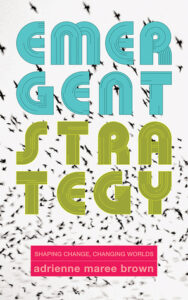
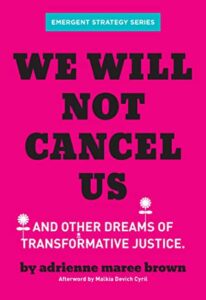
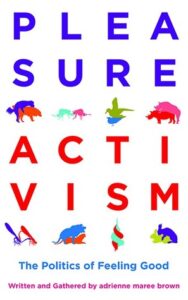
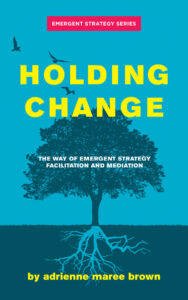

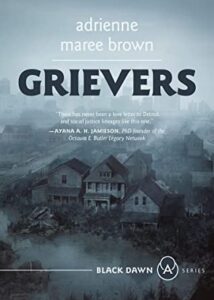
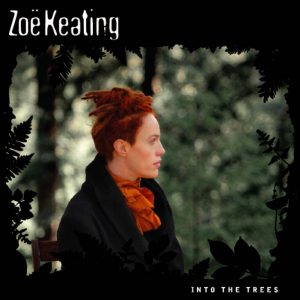




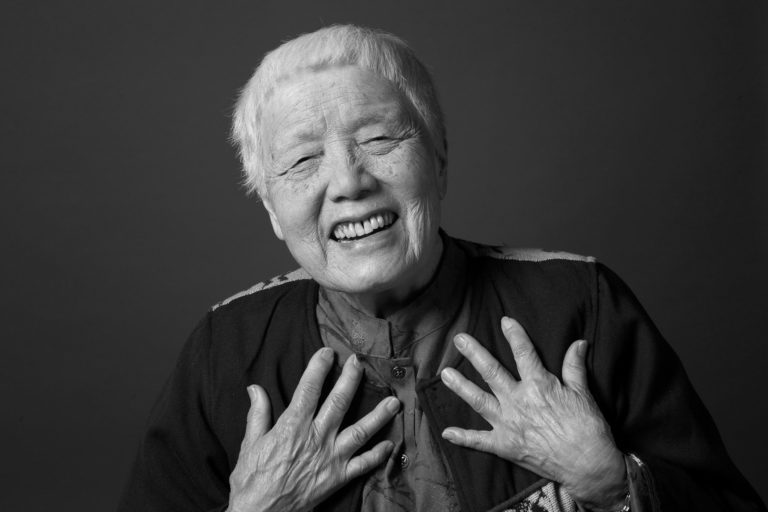
Reflections